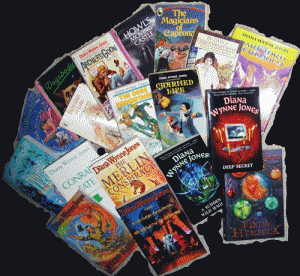The other day someone asked what I was working on and then expressed surprise when I said it was the same manuscript they had asked about previously. They felt I had been working on it for a “long time” – in fact this particular tome was on a very tight deadline and needed to be completed far more quickly than usual. This, however, is not an unusual reaction from someone outside the profession – as far as they can tell, we editors just read for a living and how long, really, does it take to read a couple of pages?
When you come to an editor for a professional edit, they are not just reading your words. They are considering each word, each punctuation mark, and the context and flow of each; separately, in combination, and in the manuscript as a whole. They will go through your manuscript more than once.
If you are a new author, many editors will also endeavour to provide you the tools with which to learn so the process becomes easier and less complex for you as time goes on. Most first drafts, particularly of first-ever novels, require a lot of work and a lot of time, but new writers, seeking to get published, don’t always know what they’re getting into when they finished their first manuscript and start looking for help to “clean it up, ready for a publisher”.
Most people who decide they want to become authors pick up on one piece of advice pretty quickly. They know that if they want to achieve their dream of becoming published, they need to write.
However, further down the track when that first novel draft is completed, things are not always so clear. Not everyone is surrounded by fellow writers, or knows what next step they need to take. Many people know only that once they have written their manuscript they need to get it to a publisher and, having looked about a little (online, or perhaps browsing the “how to get published” section of a bookshop or library), they realise they probably need to have that manuscript edited first.
This blog post is about how there is much more to it than that.
Because so often freelance editors get emails from people asking for quotes to edit the first draft of the first manuscript they’ve ever written – sometimes the first thing they’ve written since high school.
This blog post is about why you might want to put a little more work into that manuscript first, about why you might want to spend a little more time working on your own writing and editing skills before you hire someone else.
There are plenty of authors who can tell you why you’d do this from a writing perspective. There are plenty of publishing sitesthat will tell you why to do this, too.
This post talks about it from the editing perspective.
There are a number of different ways to work with a manuscript, depending on what stage the work is up to. An editor may do a structural edit, (which will go over the “big picture” stuff, checking plot, characters, consistency and – well – overall structure, as well as identifying any major repeated errors in grammar, spelling, punctuation etc.) a copy edit (this goes through the manuscript in detail, checking facts, consistency of plot and characters, as well as language, spelling, grammar, punctuation etc.), or just a straight proofread (this is less detailed and and usually ensures that all the spelling, grammar, punctuation and formatting is in order ready for print, but may also catch out any jarring facts or wording).
Depending on the author’s skill level and the state of the manuscript, the editor may decide to do a combination of these.
Alternatively, an editor can complete a manuscript assessment. Depending on the author’s wishes, this can be done at the start of the editing process – so the writer gets an idea of how much work is required on the novel, or at the end, so they can see if it’s actually ready for publication or submission to publishers.
An editor, as explained in previous posts, is there to help the author get the story in their head out on the page. Obviously the more experience an author has, the cleaner the manuscript is that the editor is working with, the easier this task is.
If an author shows up with a manuscript they have never even looked over, that is a much bigger task. It is not realistic to spend the time (or money) on all the things that likely require attention.
No matter how good the basic story is, if it is written entirely in a passive voice, or the dialogue is clunky, or there are constant shifts in tense or points of view; this draws attention away from plot errors, or grammar problems, or spelling mistakes. It’s highly unlikely that a writer would want to pay for the hundreds of hours it would take a professional editor to amend, correct and explain the problems in such a manuscript. So the editor has to make a choice as to what to focus on and that means other elements miss out.
It is not always clear what the author may actually want – do they just want what’s on the page cleaned up, or do they want the story to be the best it can be? Often it can seem that what the writer really wants is a mentor and this is really a separate task to editing.
If you’re a new writer serious about developing your skills and creating the best story you can, there are other stages you should consider before you think about engaging a freelance editor:
- After completing that very first draft: let it sit for a while. Let your brain refresh before you go back over it yourself and check the story for issues as well as looking out for grammar and punctuation.
- Do you have friends or family who you can trust to read over your work critically? Pass it to them and ask for feedback.
- If mentoring is what you’re after, consider joining a writers’ group – there’s bound to be one in your city or even online. These don’t work for everyone and you have to find the right mix of people, but such groups can be invaluable. Writers’ centres often also run workshops and mentorships.
All these things can help you workshop your manuscript in ways that could be quite expensive with a professional editor. Plus, you will learn more if you work through these stages yourself, rather than paying someone else to clean up the early draft/s and supply you with a report or some notes.
And if this list looks daunting, if all this looks like too much effort, too time-consuming? You may need to reconsider why you wish to become an author. Because while it’s perfectly true that occasionally a first-draft manuscript arrives that is very clean – an amazing story, wonderfully told, that needs little help in the way of plot tightening or grammar correction, this is exceedingly rare.
Even published authors with ongoing publishing contracts and piles of bestsellers behind them work through a lot of these methods* – many of them have their own personal beta readers, take time out between drafts of their next bestseller, and they certainly go through several rounds of editing with their publisher. Why should it be any different when you’re starting out?
* Where do you think we learned about them?




